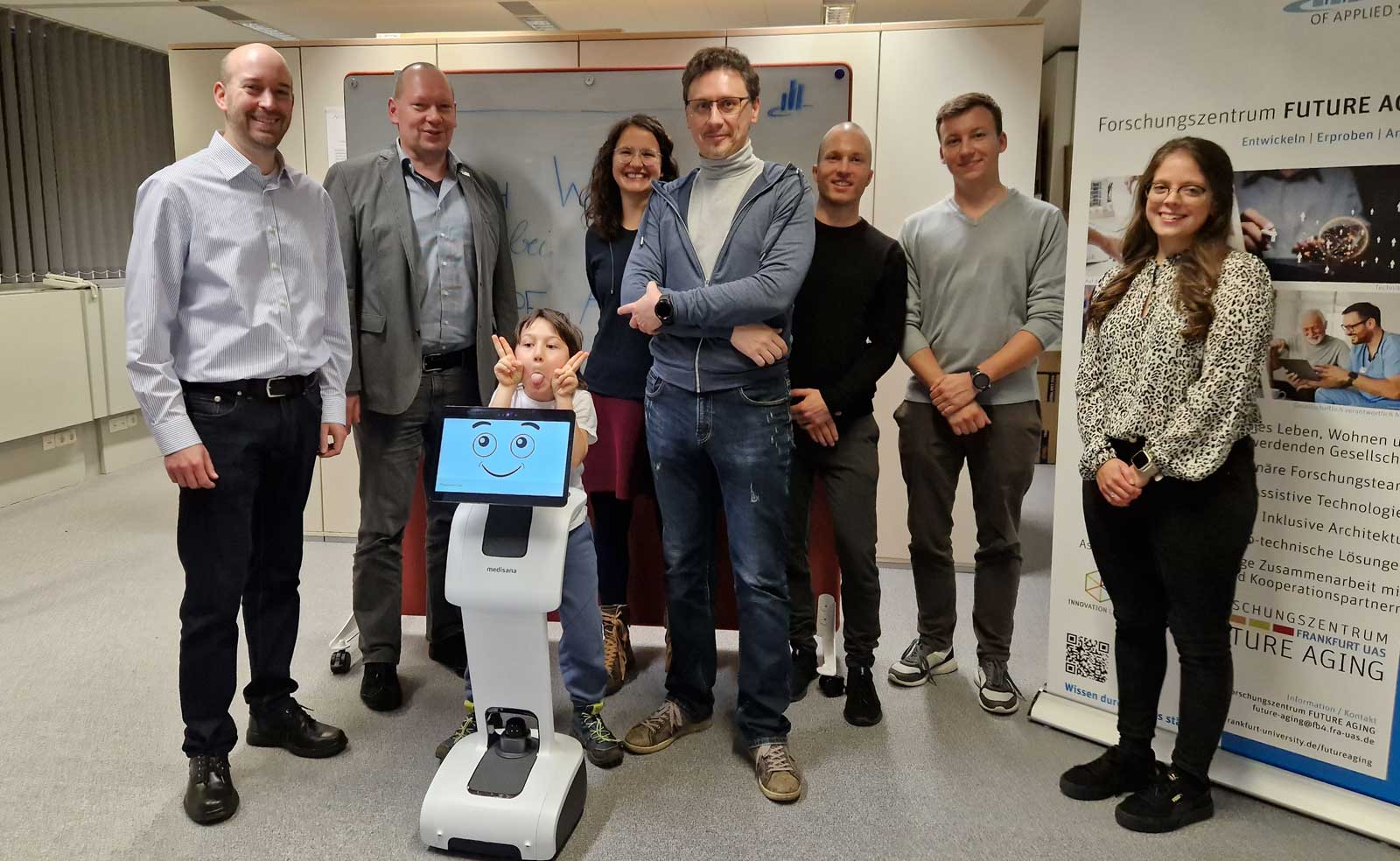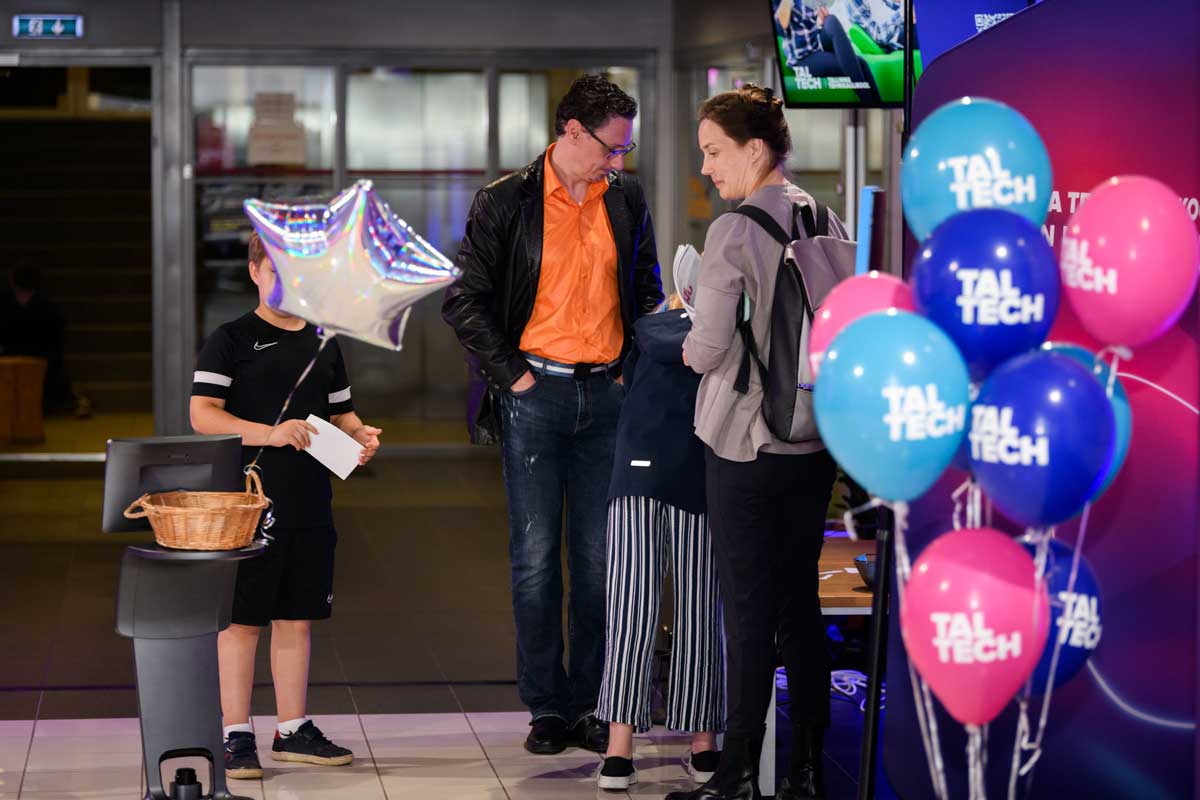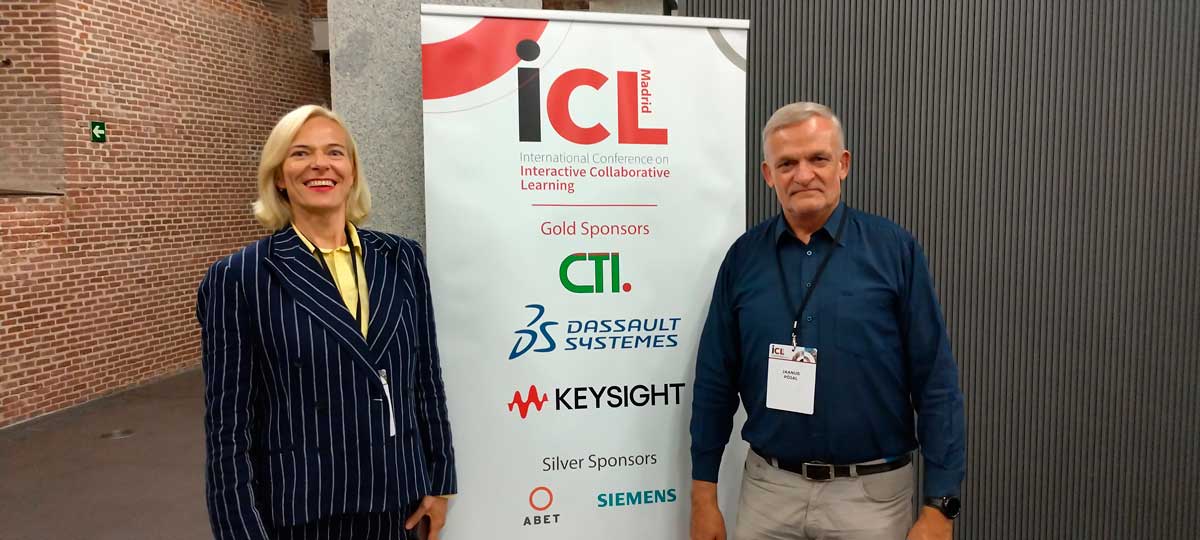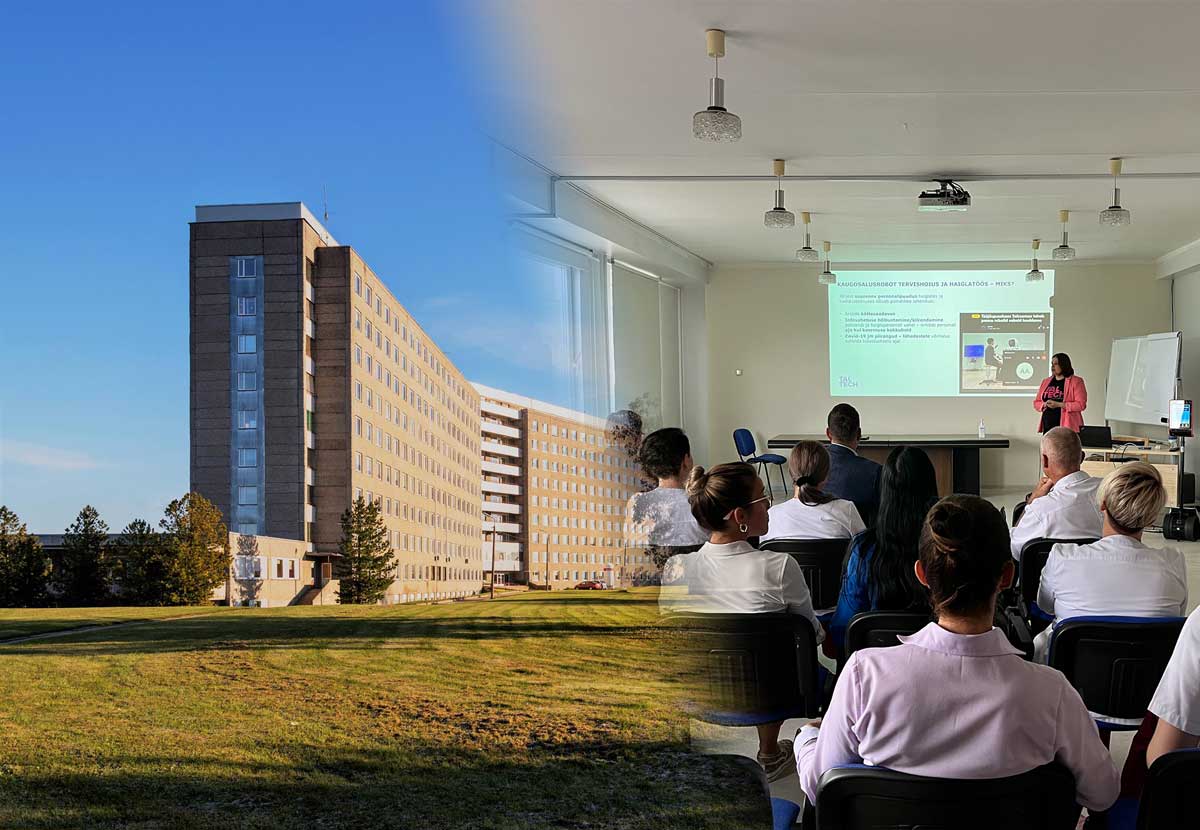Christmas experiment in Ülemiste city
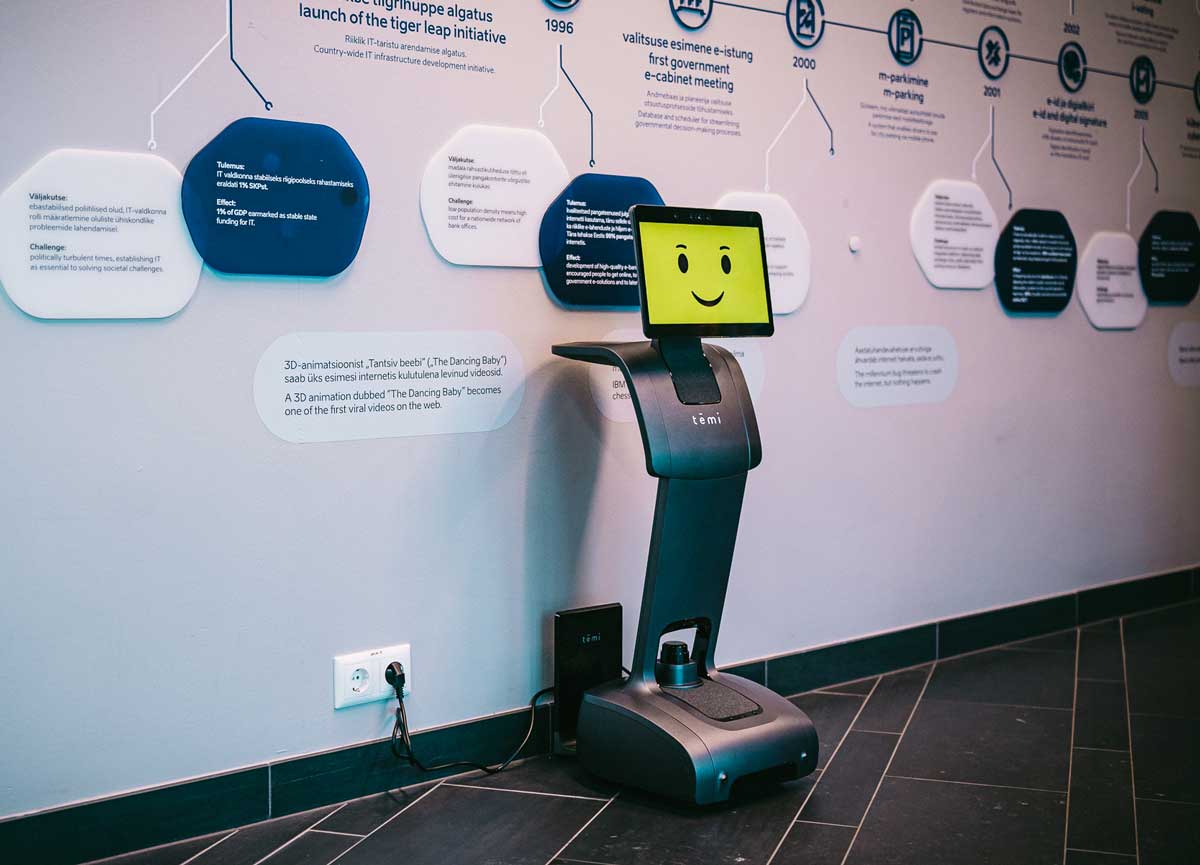
Our research group decided to conclude this year with a very special celebration by arranging a major event starring Temi as a “house manager” in Ülemiste city Öpik office building.
Spanning the entire day, the experiment aimed to evaluate TEMI’s capabilities as a host. The robot would greet the visitors, process their inquiries and lead the way to the selected location keeping track of the visitor’s movement to ensure the human keeps the pace. In addition to that Temi could initiate a call with the company representative to provide further guidance if required.
As the experiment concluded, participants shared their feedback, reflecting on the comfort and reliability they experienced in their interactions with the robot, and also their perceptions of TEMI as a communication partner.
As opposed to the previous experiments we conducted, this one unfolded in a public space and blended with an everyday life of an office building. Unlike past scenarios confined to simulated environments, this one provided a more authentic setting for assessing TEMI’s practicality.
In parallel to the experiment the Öpik conference center hosted a visionary seminar titled “Communicating Service Robots: Boon or Bane?” The seminar became a forum for exchanging ideas about the evolving role of service robots in contemporary society. Janika Leoste, the head of the Creativity Matters research group at TalTech IT College, and Prof. Thomas Hollstein from Frankfurt University of Applied Sciences shared their insights and experiences with service robots, contributing to a rich discourse on the subject.
